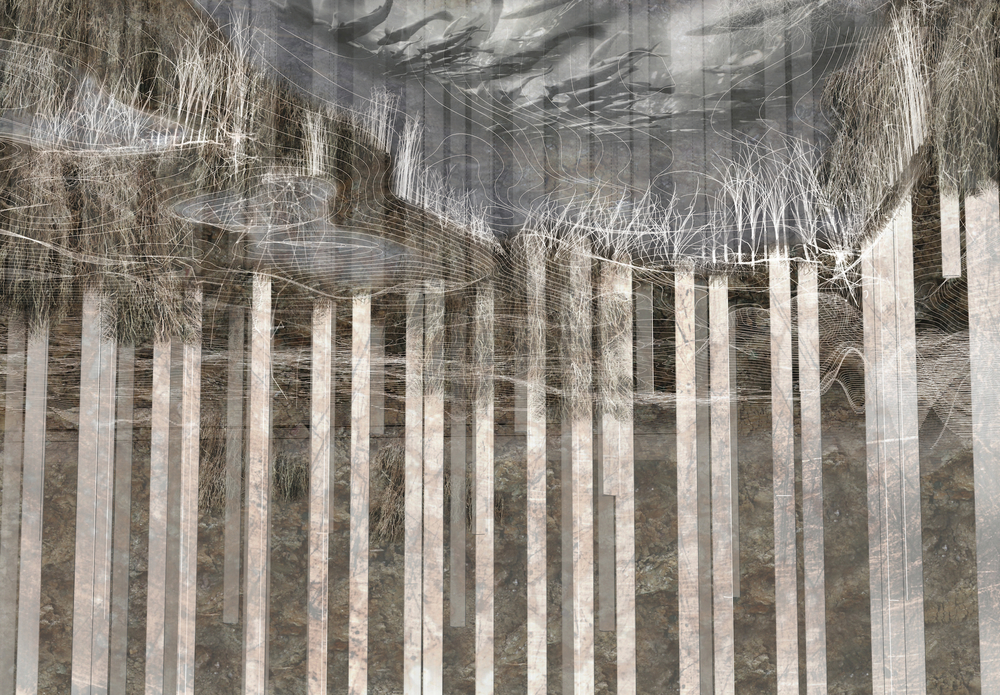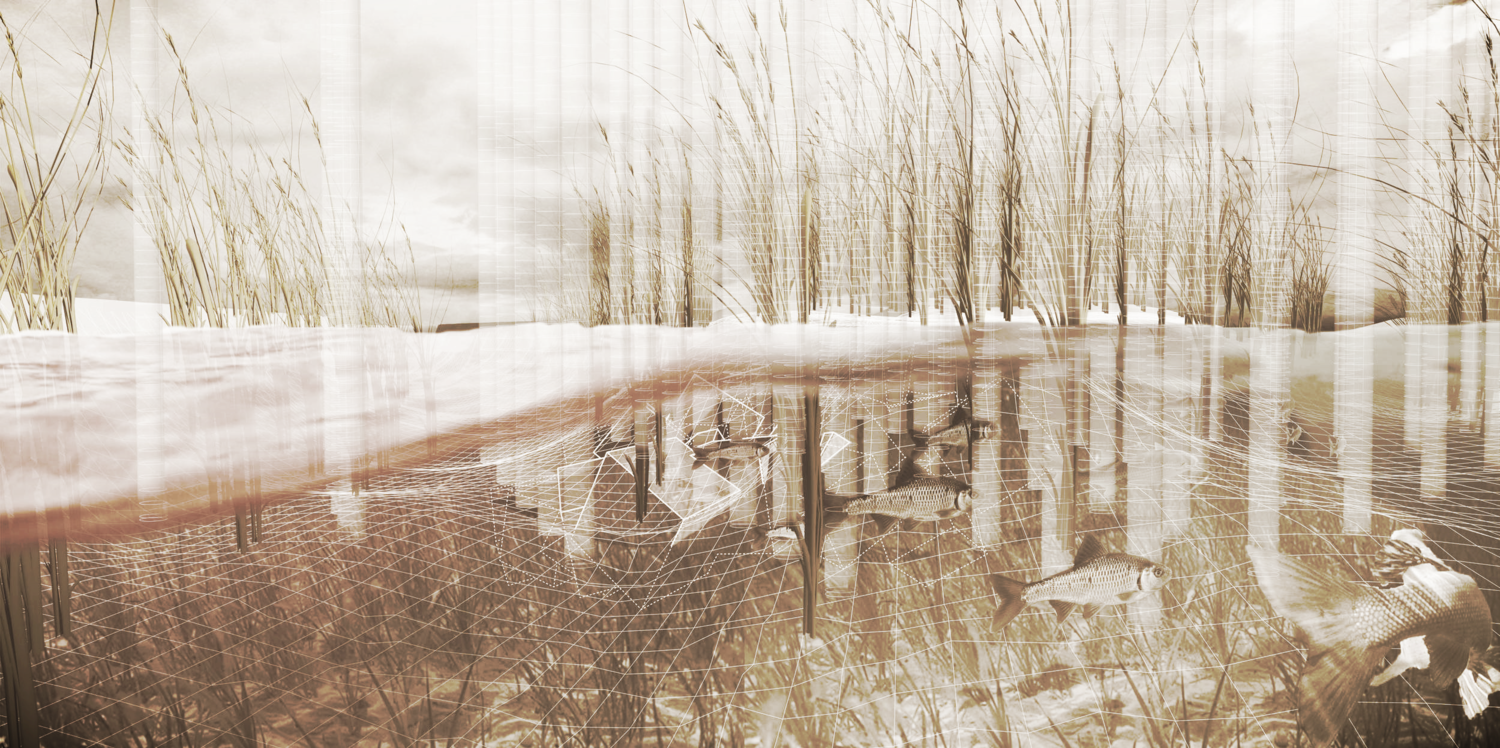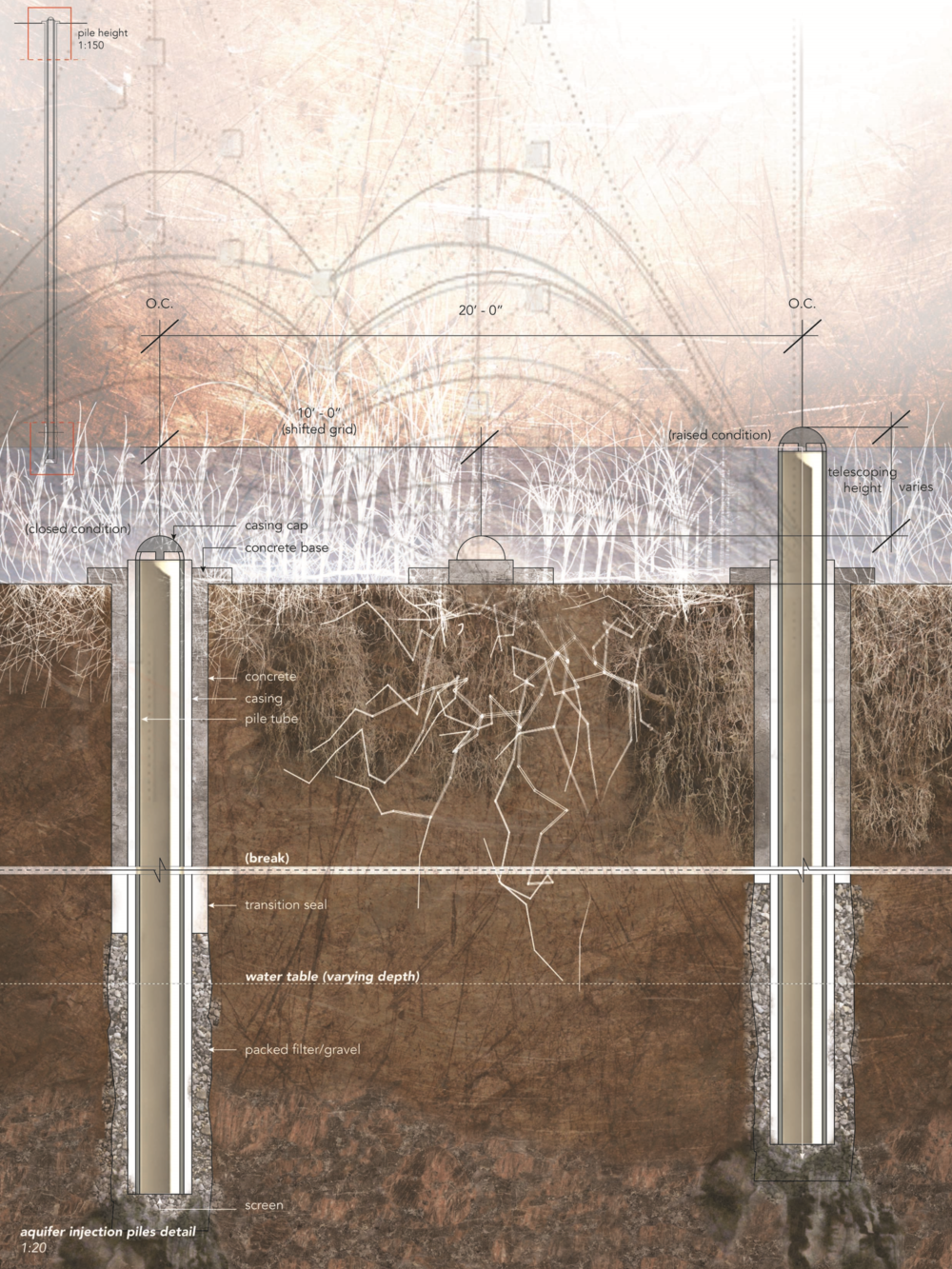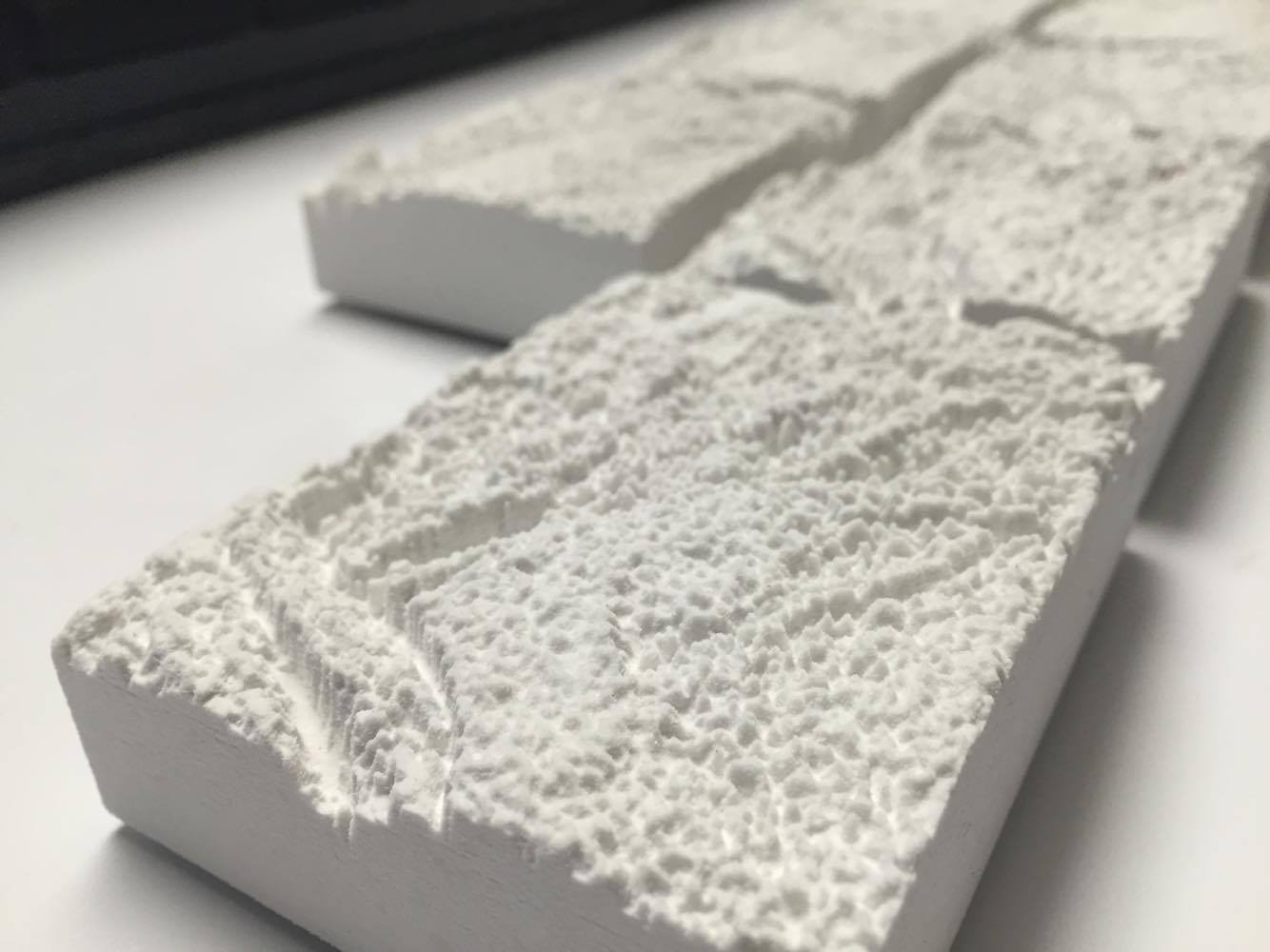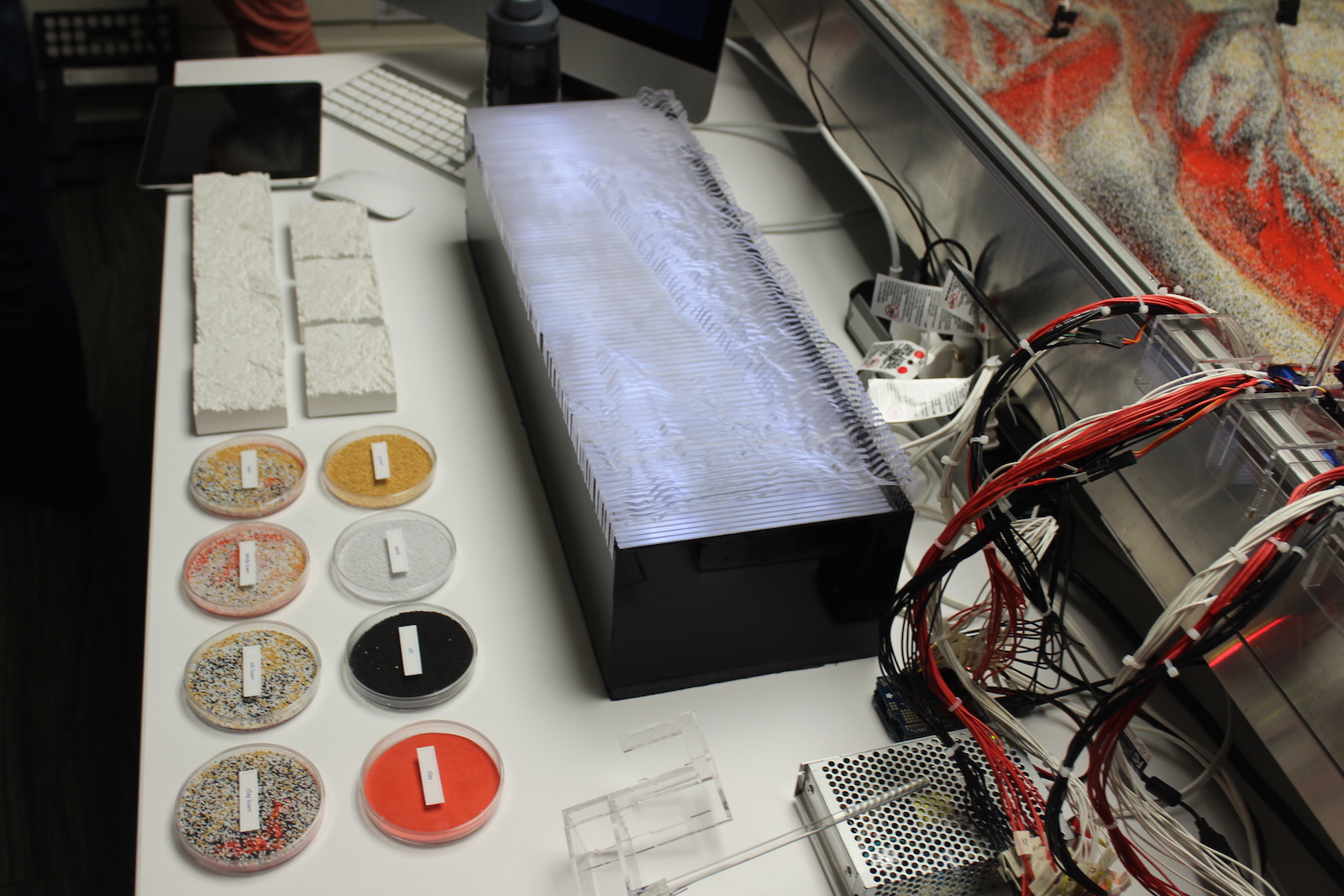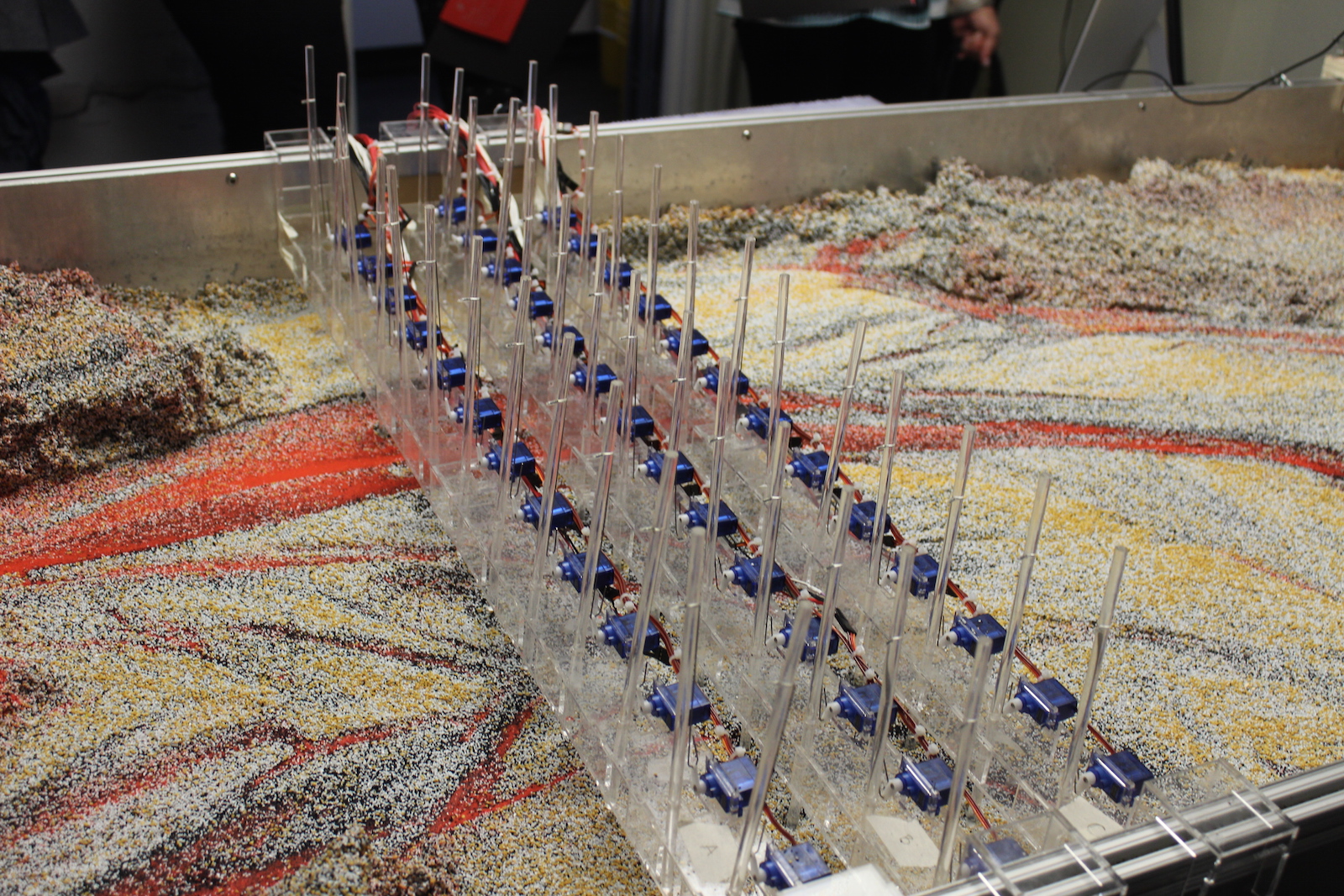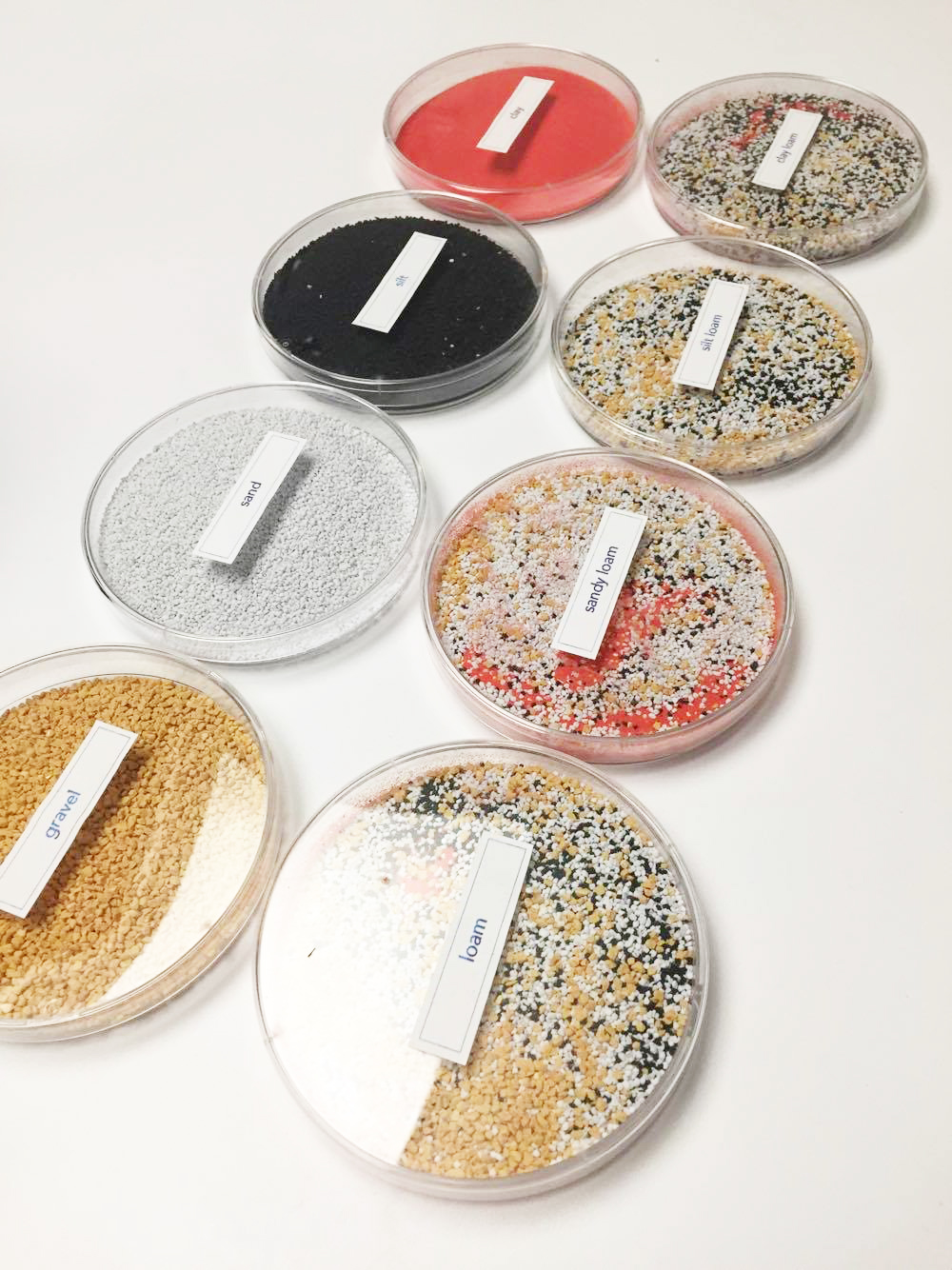Towards Sentience: Attuning the Los Angeles River’s Fluvial Morphology
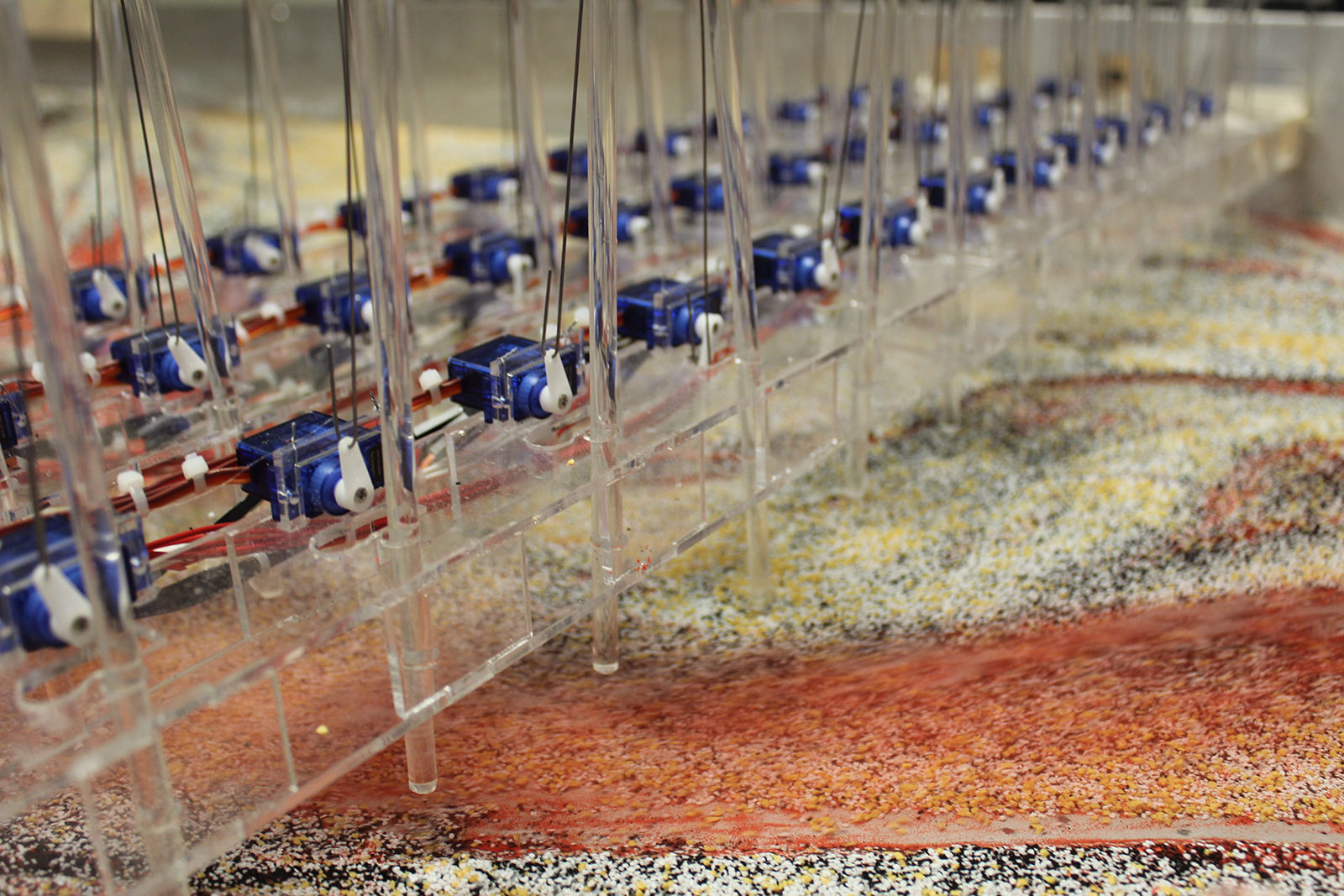
by Leif Estrada (MLA/MDes ’16) — Recipient of the 2016 Thesis Prize
This thesis incorporates the design of a robotic machine, which will attune the fluvial morphology of the LA River through a series of real-time sensing and responsive manipulations as a way to curate the projective successions of the river—constantly altering and modifying the riverine landscape, privileging the evolution of ecological processes over static constructions.
The machine will learn from initial site conditions of the LA River, but also from the modifications it will produce independently. The landscape machine will eventually become sentient, through learning from its environments, iteratively honing on specific operational processes:
to erode the existing concrete lining;
to attenuate flows of water and sediment in order to accrete new temporal landforms;
to infiltrate the subterranean arid landscape of LA and charge new aquifers;
and to predict the successive planting that would endure the projective new Nature of the river.
Sentient-ly, it will attune the fluvial landscape—to a level of degree that man is incapable of processing in order to respond and modify the landscape in real-time. Projective-ly, sentient machines will be created to aide landscape architects and designers to address human’s incapability to negotiate complexities that occur in real-time, which necessitates immediate responses. Through this new imagined sensory, it will enable the emergence of new forms of landscape, which was not possible without the machine’s new dimensions of sentience.
Theoretical Framework
Rejection of the dichotomous image created by ‘the manmade’ and ‘the idealized’ untouched image of Nature was brought on by technological advancements humans developed for modifying all known Natures.
Such production brings upon an anxiety as to what was once natural. Through our ability to create and conceptualize hybrids of biotic and abiotic systems, we have also facilitated the evolution and image of novel ecologies. Furthermore, design is consistently introduced to “tame” newly-ostracized biologic systems to human will. To legitimize uncanny creations, humans find and extract any economic and practical capacities. However, despite levels of human control, there is always a moment in which a system will fail.
Today’s systemic failures, re-situate novel ecologies in the contemporary realm of “uncontrolled environments.”
Can responsive systems learn from the living landscapes? Can sentient machines mitigate foreseeable systemic failures, as well as facilitate the emergence of novel ecologies?
This thesis incorporates the design of a machine that will learn from initial site conditions, but also from modifications it will produce independently. The landscape machine will eventually become sentient, freeing itself from man’s control. Autonomously, it will act as a non-subjective author—constantly altering and modifying landscapes, privileging the evolution of ecology over static constructions. Future landscape designers will be creators of autonomous, human-value reinforcing machine because, as individuals, we have lost touch with our ability to negotiate the complexities of our relationships with non-human actors throughout all of earth’s landscapes.
A shift in what has become the accepted norm concerning ecology is necessarily upon us.
Project Website:
towardssentience.com
